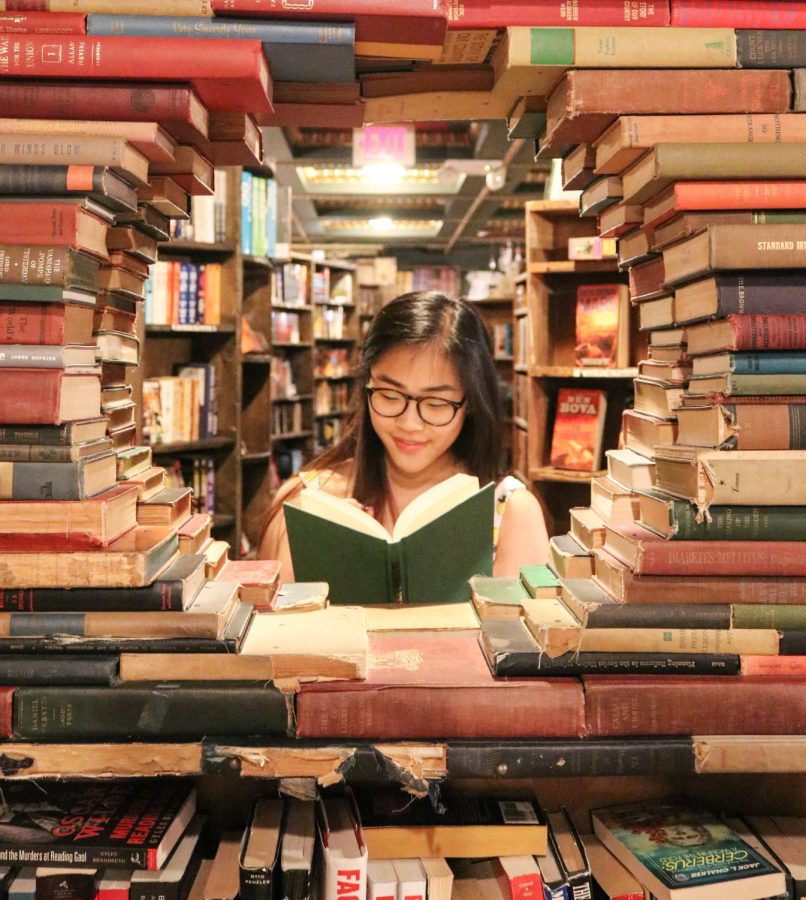Exposing children to empowering literature from a young age is essential to building strong and confident minds among today’s youth. Children’s literature has incorporated many important motifs about good and evil as well as morality, which can be seen throughout classrooms and libraries. But often, young girls lack feminist literature on the shelves to encourage confidence and acceptance as they grow in a society that undervalues women.
Practically from infancy, young girls swallow media and literature pushing ideas of “normal” behaviors for women. Tropes such as the damsel in distress, the silent woman, the cursed beauty and the rags to royalty saturate classic fairy tales, which are retold time and time again for an “enticing” plot. Female characters boil down to hushed beauty or demure grace and humility, serving no purpose but the apple of the eye, the passive accolade to be collected by male figures. On the other hand, male counterparts are depicted as brave, stoic and witty, always rewarded for their chivalrous achievement with a lady passed down like a market-item.
These common archetypes are invasive to the minds of young girls, and, unsurprisingly, invade classic and modern literature. Fairy tales such as Snow White, Sleeping Beauty and the Little Mermaid promote the same compliant-woman storyline. Modern rom coms and heavy action feature the same submissive woman arc or the over-sexualized, fighting sidekick.
Junior Juliane Binto has seen these archetypes, and many more, repeated countless times in modern media. “I believe that literature, especially movies and tv, often presents a very two-dimensional view of the young girl. Girls in media are often pigeonholed into a category, whether that’s the stereotype of being dumb and pretty or smart and awkward,” she stated. “I’ve seen countless movies that portray girls as uncomplicated, makeup obsessed creatures that are irrational and unintelligent. Other times, girls that are incredibly enthusiastic about something, such as a popular band, are made fun of and used for comedic value.”
The incessant hammering of stereotypes for women becomes extremely confining for young girls trying to find their place. As young girls undergo rapid changes in life with their bodies, social treatments and emotional shifts, they should have access to literature which builds them into independent, content beings.
These anti-feminist archetypes seem inescapable and omnipresent when imagining literature of the past, but as these stories are retold, writers and producers are working to include more feminist attributes in their works. But has it proven to be enough to build up young girls in a time of insecurity?
First, one must analyze the source of insecurity for many young girls. English teacher and mother Lynne Lundberg coined this phenomenon “the crisis of confidence at age 11.” She stated, “you will find a girl, who just two years ago felt that she could take on the world, felt she was destined for great things, hit a crisis of confidence at age 11. If you map that onto the average age of puberty in America right now, you will find that it is, not-coincidentally, the same age.” This crisis of confidence manifests itself alongside puberty, making this age a crucial time of malleability for young minds.
Lundberg continued, “Why is 11, the age of the crisis? Well, with puberty comes messages of shame with the female body, messages about the importance of the female body over the female mind, competitive messages rather than cooperative messages about how to become all that you can be as a woman.” Society instills the idea of superficial beauty into women from such a young age. With puberty comes the ever-relatable insecurities and doubts and parasitic thoughts about the value of this young girl’s body over her ideas. This is absolutely the wrong time for these young girls to be seeing tropes of passive, meek female characters only valued for their beauty constantly crutching on their male savior.
Instead, Lundberg emphasized the importance of empowering literature. “When that 11 year old girl is in that crisis of confidence, she needs stories about successful women. Stories about successful men don’t tell her anything about her own capabilities. They tell her about human capabilities, which is great, but they don’t tell her that women can do these things,” she stated. These young girls need role models in literature to look up to. Lundberg continued, “That 11 year old girl is in the middle of figuring out what is important for her as a woman. So it is really essential to see that representation.”
Girls need this representation of strong female leads to overcome the period of crisis. Yet producers and writers are more reluctant to publish material featuring women. In any work of literature, the audience attempts to find themselves in characters of the text. Girls will happily consume media featuring girls, but they will also consume media featuring boys — they are able to bridge the gap of gender and find relatable human qualities in both. But boys will not watch movies featuring female leads. Producing female driven works becomes costly to the creator, as the audience is cut in half.
In an interview with Marie Claire Australia, English actress Emma Watson shared her reasoning behind the lack of support for women leads. “We see whoever is on screen and recognize the human qualities in the man that we relate to, and there’s not such a gap. But for some reason, there’s some kind of barrier there where [men] are like, ‘I don’t want to relate to a girl.’ I think it is inherently part of the problem,” she stated. Watson starred in Beauty and the Beast, and noticed the lack of male attention for her film.
Since female driven literature cuts the audience in half, creators are very reserved when spreading their message with a feminist mindset. But Lundberg found this gender-based separation a substantial problem. “Producers know they will have a really great female audience, they still are very unwilling to give up the male audience. But they shouldn’t have to give up the male audience. They should be able to persuade male audiences that female characters are interesting. That is the task that ought to be taken on,” she stated.
Overcoming social norms for women is the utmost progressive step in ensuring women are comfortable in their skin. Literature thus far clearly pushes a “right” and “wrong” type of woman onto the masses, but efforts to overcome this flat characterization has increased as womens’ rights are broadcasted and acknowledged. Binto recalled newer books and films that particularly overcame the archaic classifications for women. “I watched the Pixar movie Turning Red recently, and I loved the way the main character, Mei, was portrayed as a smart, capable young girl who also absolutely loves boy bands. This sort of portrayal turns previous female stereotypes on their heads and provides girls with a realistic role model that doesn’t fit into a pre-existing ‘category,’” she stated.
Literature that truly works to create three-dimensional, multi-faceted female characters, rather than redoing sapped tropes of practically the same character, is the future for empowering literature. During times of insecurity, as found in pre-teens across the nation, works that make a girl feel like she “fits” are enough to elevate her confidence past the crisis. Empowering literature should be available for all young girls, to spark her conviction and inspire her creativity.









